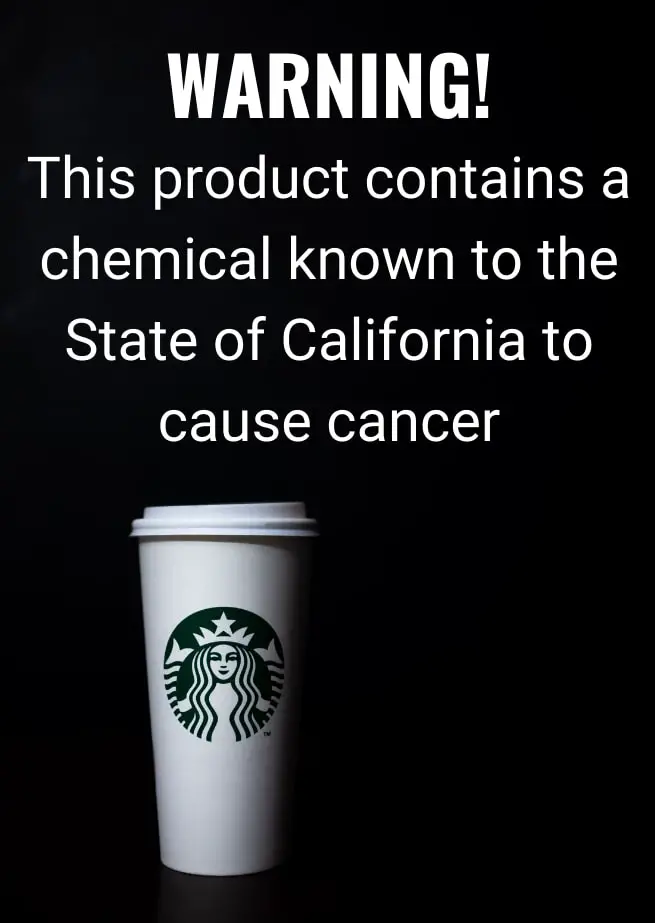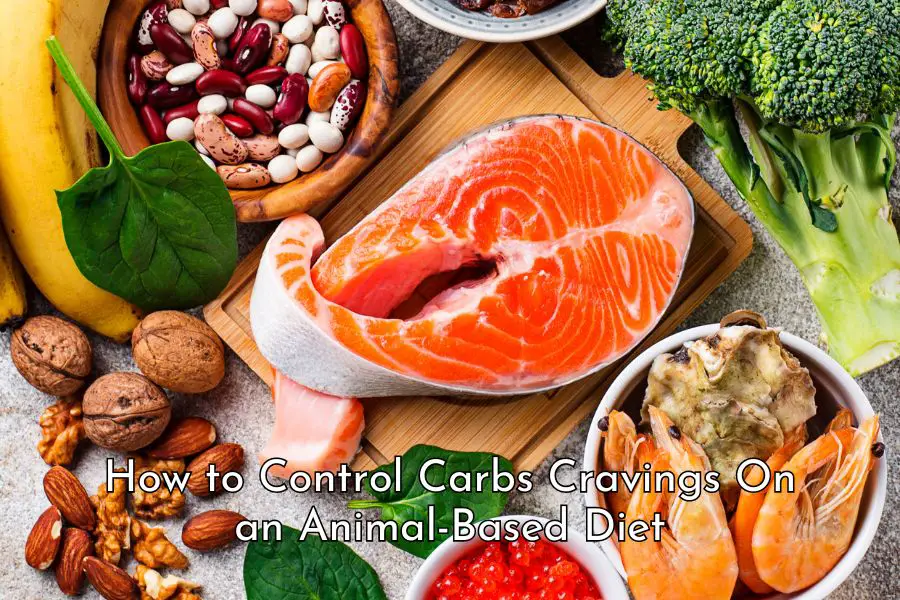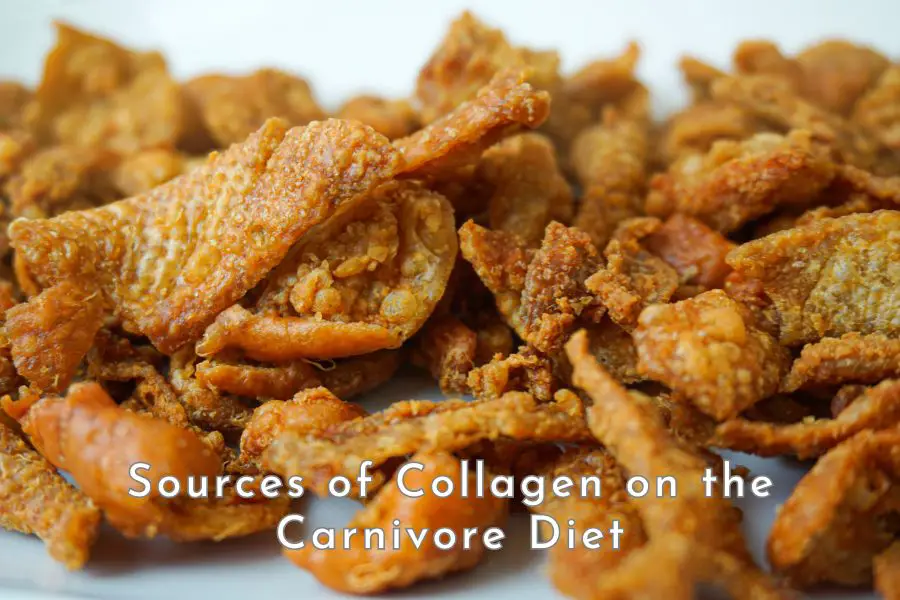Coffee is the most widely consumed psychoactive stimulant drug in the world and, frankly, some of us can’t start the day without one and can’t imagine a life without it. But coffee is definitely not a carnivore food and one of the most commonly asked questions amongst the carnivore community is whether you can still drink coffee on the carnivore diet.
While I have mentioned several times on this site that it is generally okay to add some seasonal plant food to the carnivore diet, it is impossible to do so with coffee because of its highly addictive nature.
I’m not a heavy coffee drinker, I used to have only about a cup a day on average. But I’ve given up coffee while doing research for this post and learning about the shocking truth about coffee. And here is my short answer to the above question:
Based on available evidence, in my view, you should not drink coffee on the carnivore diet or any other diet for that matter because coffee contains:
- caffeine, a stimulant that interferes with the normal healthy functioning of your brain,
- acrylamide, a byproduct of the roasting process which is a neurotoxin and a carcinogen,
- ochratoxin, a fungal mycotoxin that is a nephrotoxin, a liver toxin, an immune suppressant, a potent teratogen, and a carcinogen, and
- pesticides and herbicides that can be extremely toxic and cause serious long-term health problems.
The benefits of coffee consumption in humans, however, are based on observational studies only which only show associations and can’t prove causation. In animal studies, coffee is found to contain substances that cause serious health problems.
Read on to find out what is in coffee and why you should definitely give it up if you can plus some tips to help you quit coffee gradually.
What is in coffee?
Coffee is a brewed drink prepared from either ground roasted coffee beans or instant coffee powder.
If you don’t add cream, milk or sugar to your coffee, the main thing you get from drinking coffee is caffeine. There is also a small amount of vitamins and minerals (riboflavin, pantothenic acid, thiamin, niacin, magnesium, potassium, and manganese), but no calories.[1]
However, most people don’t drink coffee for the nutrients, they drink coffee because of the caffeine and what it does to their bodies. One cup of black coffee has about 96 mg of caffeine.
In addition to getting the caffeine, you are also getting other harmful substances that are not widely known including acrylamide, ochratoxin, aflatoxins, pesticides and herbicides.
Let’s have a look at those below and see why you should not drink coffee on the carnivore diet or on any other diet for that matter.
Caffeine
What is caffeine?
Caffeine is a methylxanthine alkaloid structurally related to adenosine and acts primarily as an adenosine receptor antagonist.[2]
What does caffeine do to your brain?
Adenosine is a nucleoside that occurs naturally in all cells of the body. In the brain, adenosine is an inhibitory neurotransmitter and promotes sleep and suppresses arousal. When you are awake, adenosine rises as time goes by.[3]
After being awake for 16 hours or more, the adenosine in your body would have reached such a level that you would have trouble staying awake. And that’s how your amazing body tells you that you really need a rest and it’s time to sleep, to recover, and to rejuvenate.
However, if you drink coffee, the caffeine in the coffee will bind to adenosine receptors in the central nervous system and stop these adenosine receptors from doing their job, namely down-regulating the central nervous system. In addition, caffeine also promotes neurotransmitter releases that further stimulates the central nervous system. [4]
As a result, for a short period of time, drinking coffee will give you the illusion of being less tired, more alert, more energetic, and even more creative.
In reality, behind the scene, caffeine does no such thing. Caffeine simply stops your body from functioning as it should. It stops you from feeling what you are supposed to feel. The tiredness or sleepiness doesn’t go away, you are just not feeling it. Just like when you have a headache, joint pain or back pain, taking pain-relief medications only stops you from feeling the pain temporarily and does nothing to fix the underlying problems.
Why coffee is highly additive?
While caffeine works to stop adenosine receptors from doing their job, your body is still patiently releasing adenosine, sending you the signal that you need a break. Adenosine in the brain will build up. After a few hours, your body would have gotten rid of a significant quantity of the ingested caffeine. And that’s when some of the build-up adenosine is finally able to latch onto the brain receptors and you will suddenly feel extremely tired with very little energy to do anything and experience the ‘coffee crash’. [5]
If you’d listened to your body, you’d have taken a break. But it’s very likely that, like many other coffee drinkers, you’d tell yourself that it’s time for a coffee top-up. The new caffeine will again go to work to block the adenosine from sending the signal to your brain and prolonging the illusion of alertness.
Over time, due to adenosine build-up, you will need more and more caffeine for it to work its magic. And that is how you gradually become dependent on caffeine to function.
Without your usual dose of caffeine, you will suffer from serious withdrawal symptoms such as headache, low energy, irritability, and anxiety.
As caffeine is relatively cheap and widely available, it is easy to understand why it has become the most widely consumed psychoactive drug in the world.
Risk of caffeine consumption
From above, it is easy to see why caffeine affects sleep quality and, consequently, your performance.
Caffeine has a half-life of about 6 hours, i.e. 6 hours after ingesting it, there is still about 50% of caffeine remained in your body. But it also has a quarter-life of about 12 hours, i.e. 12 hours after ingesting it, there is still roughly 25% of the caffeine left in your body. Caffeine is only completely discharged after 24 to 36 hours.
If you have a cup of coffee at 2 pm, by 8 pm, there is still a substantial amount of caffeine swirling around in your body, keeping you awake and reducing both the duration and quality of your sleep.
A study on the effect of caffeine on sleep finds that 400 mg of caffeine (roughly 4 cups) taken 0, 3, or even 6 hours prior to bedtime significantly disrupts sleep. Even at 6 hours, caffeine reduced sleep by more than 1 hour. [6, 7]
Caffeine also reduces the amount of deep, non-rapid eye movement sleep, i.e. stages 3 and 4 of non-rem sleep, the restorative sleep.[8, 9]
According to Matthew Walker, a Professor of Neuroscience and Psychology at the University of California, Berkeley, one dose of caffeine in the evening decreases the amount of deep sleep by 20% and you would need to age about 15 years to have the same effect.[10]
And if you have had a lousy night, you are more likely to depend on copious amount of coffee the next day to function.
There is also evidence linking caffeine consumption to insomnia, anxiety, digestive issues, increased blood pressure, muscle breakdown, and other health risks. [11, 12, 13, 14, 15, 16, 17, 18, 19, 20, 21, 22, 23, 24, 25, 26, 27, 28]
However, in a comprehensive review of research to date regarding the safety and safe doses of caffeine consumption, Temple et al (2017) reported that “for healthy adults, caffeine consumption is relatively safe, but that for some vulnerable populations, caffeine consumption could be harmful, including impairments in cardiovascular function, sleep, and substance use“. [29]
Because these studies are mostly epidemiological studies that can only identify links between dietary patterns and health outcomes in humans and can’t prove causation, in summary, we don’t know for certain the risks of long-term coffee consumption. But you can certainly carry out an experiment N=1 on your own by abstaining from coffee and see how you feel.
Acrylamide
What is acrylamide?
Acrylamide is a chemical that can form from sugars and asparagine, an amino acid, in some foods during high-temperature cooking processes, such as frying, roasting, and baking.[30]
Acrylamide can be found in food (French fries and potato chips; crackers, bread, and cookies; breakfast cereals; canned black olives; prune juice; and coffee), cigarette smoke, and other products (plastics, grouts, water treatment products, and cosmetics). [31, 32]
Coffee is one of the main dietary sources of acrylamide because it is consumed in large qualities in many countries. One single 160 ml cup of coffee has about 0.45μg acrylamide in roasted coffee. Instant coffee has more than double the level of roasted coffee at 0.93μg per cup. Coffee substitutes made from grains have 7 times more acrylamide at 3.21μg per cup.[33]
Risk of acrylamide consumption
Studies have shown that acrylamide causes cancer in animals that were exposed to it at very high doses. Acrylamide has been found to be a reproductive toxicant in animal models and a rodent carcinogen. In some reviews of acrylamide toxicity, it has been categorized as potentially a human carcinogen.[34, 35, 36]
Acrylamide is also classified as a neurotoxin for both humans and laboratory animals. Sub-chronic exposure to acrylamide causes nephropathy, hands and feet numbness, gait abnormalities, muscle weakness, ataxia, skin and in some cases, cerebellar alterations.[37, 38]
Based on the result of animal studies, the International Agency for Research on Cancer has classified acrylamide as a group 2A carcinogen for humans. Health authorities concluded that acrylamide is a human health concern, however, results of observational studies in humans are inconclusive. [39, 40, 41, 42]
The current consensus seems to be that a low dose exposure of acrylamide is probably safe in humans. The FDA does not recommend people stop eating roasted, fried, and baked goods because of acrylamide. However, there is a concern about the accumulative effect of acrylamide in that low doses just take longer to become a health problem.
While many researchers believe that exposure of humans to relatively low levels of acrylamide in the diet will not result in clinical neuropathy, some neurotoxicologists are concerned about the potential for its cumulative neurotoxicity. It has been shown in several studies that the same neurotoxic effects can be observed at low and high doses of acrylamide, with the low doses simply requiring longer exposures.[43]
If you can drink coffee only when coffee is in season, you’ll probably be okay. But if you drink 3 to 4 cups a day for 40 to 60 years of your life, be aware of its potential harmful accumulative effect.
Cancer warning
In a ruling against Starbucks and other coffee sellers in California in 2018, a judge had ordered these companies to post cancer warnings on coffee sold given the evidence linking acrylamide to cancer. And they actually did for 3 years. This decision was, however, overturned later by a superior court judge in 2020, but still it is an indication of how serious a risk acrylamide is.[44, 45]

Ochratoxin
What is ochratoxin?
Ochratoxins are mycotoxins produced by some fungal species. Their main forms are ochratoxin A, B, and C of which ochratoxin A (OTA) is the most prevalent and relevant form of this group.[46]
OTA is prevalent in coffee. For example, in this study, 60 samples of green coffee beans from Brazil were tested and 91.7% of them were contaminated with molds and 83.3% contained OTA. However, all samples showed OTA levels below the limit suggested by the European Union.
Risk of ochratoxin exposure
In all animal studies to date, OTA is found to be a nephrotoxin, a liver toxin, an immune suppressant, a potent teratogen, and a carcinogen. OTA can disturb cellular physiology in multiple ways, inhibits mitochondrial ATP production and stimulates lipid peroxidation.[47]
OTA is likely to be toxic to humans who have the longest half-life for its elimination of all the species examined. It is also suspected to be involved in a human disease called endemic Balkan nephropathy. However, a 2015 review of all epidemiological studies to date did not find statistically significant evidence of human health risks associated with OTA exposure.[48, 49]
Pesticides and herbicides
More than 90% of the coffee consumed today is non-organic, i.e. it is sprayed with pesticides, herbicides and potentially harmful chemicals.
Top coffee producers today are Brazil, Vietnam, Colombia, Indonesia, Ethiopia, Honduras, India, Uganda, Mexico and Guatemala. Many of these are developing countries and producers are subject to less stringent regulations with regard to the use of chemicals in their coffee crops.
For example, in an investigation in the coffee-growing industry in Brazil, it is found that coffee is sprayed with pesticides that are illegal in the EU because they are extremely toxic and can cause serious acute and long-term health problems. [50]
Pesticides contain terbufos are banned in the EU because the chemical is so toxic, skin contact can kill you. Symptoms of poisoning are involuntary muscle contractions, drooling, visual disorders, reduced coordination, dizziness, vomiting, difficulty breathing and loss of consciousness. But in 2014, over 364,000 kg of pesticides containing terbufos were sold in the state of Minas Gerais which produces half of all coffee in Brazil. Tones of other dangerous chemicals, which have been banned by the EU, like aldicarb, fenpropathrin and carbuforan were also sold in the state. [51]
A herbicide commonly used in Brazilian coffee plantations is glyphosate, which is sold under the brand name Roundup. In 2014, 1,800 tons plus 18,000,000 liters of glyphosate were sold the three regions of Minas Gerais state where most of its coffee plantations are located. Glyphosate can cause DNA damages and even in small doses can cause cancer many years later.[52]
However, perhaps comforting news for coffee drinkers is that pesticide residues in coffee are found to be low after all the processing including washing, roasting, and brewing.[53, 54]
Claims of the health benefits of coffee are based on epidemiological studies
Reviews of mostly observational studies on health benefits and risks of coffee consumption generally find that overall health benefits outweigh risks. [55, 56]
For example, Pourshahidi et al (2016) reviewed 1,277 studies on the potential health benefits and risks of coffee consumption and concluded that:
Overall, the results of this comprehensive review show that the health benefits (or null effects) clearly outweigh the risks of moderate coffee consumption in adult consumers for the majority of health outcomes considered. This finding is largely based on observational data and, moreover, major interactions were noted between coffee consumption and other lifestyle habits (such as smoking, alcohol and hormone replacement therapy).[57]
I usually don’t read conflicts of interest disclosure in published papers but happened to find out that the above study received some financial support from an Italian coffee company and two of the authors are associated with this company.
Nevertheless, given observational studies can’t prove causality and only show associations, in short, we don’t know for certain whether coffee consumption has health benefits overall or poses health risks in humans. What we know for sure is, in animal studies, coffee contains substances that cause serious health problems.
When should you quit coffee on the carnivore diet?
If you are currently on the standard American diet and want to start the carnivore diet, you will have to quit soft drinks, sugary snacks, processed foods, carbs, and other plant food. It’s probably best not to attempt to quit too many things all at once.
My personal view is that if you want to quit coffee too, get yourself fully adapted to the carnivore diet before trying. Here is a step-by-step guide to starting the carnivore diet. It will show you how to start the carnivore diet in a way that fits your personal circumstances and preferences.
After you have transitioned to the carnivore diet, you can try to quit it gradually, for example, by reducing the number of cups drunk a day gradually, shortening the brew time, and/or switching to green tea which has less caffeine before quitting it completely.
Quitting cold turkey is an alternative if you are willing to cope with a lot of withdrawal symptoms in a short period of time.
As mentioned above, I’ve quit coffee while doing research for this post. Because I wasn’t a heavy drinker, quitting coffee was not too bad for me. I only did it in a week, by shortening the brew time, then had decaf for a couple of days and I was done. I had a mild headache for the first few days but was fine after that. The one significant thing I noticed so far was an improvement in sleep quality.
If you can’t quit coffee while on the carnivore diet …
Having said all of the above, if you can’t quit coffee, it’s definitely not the end of the world.
There are so many factors that can affect your health, diet is just one of them.
If you’ve already given up soft drinks, processed food, grains and most plant food, and are now eating mostly just fresh meat and organs, you are doing great already. Give yourself a pat on the back and keep your coffee sin for now… but maybe try to quit again one day in the future?
If you still want to drink coffee, drink the real coffee, buy the best coffee you can afford, and stay away from instant and decaf coffee and coffee substitutes. Also, drink it early in the day and try to limit your caffeine intake the best you can.
Disclaimer: The information in this post is for reference purposes only and not intended to constitute or replace professional medical advice. Please consult a qualified medical professional before making any changes to your diet or lifestyle.





